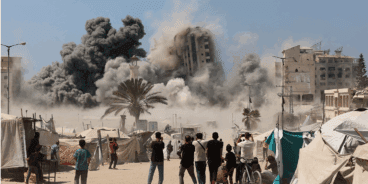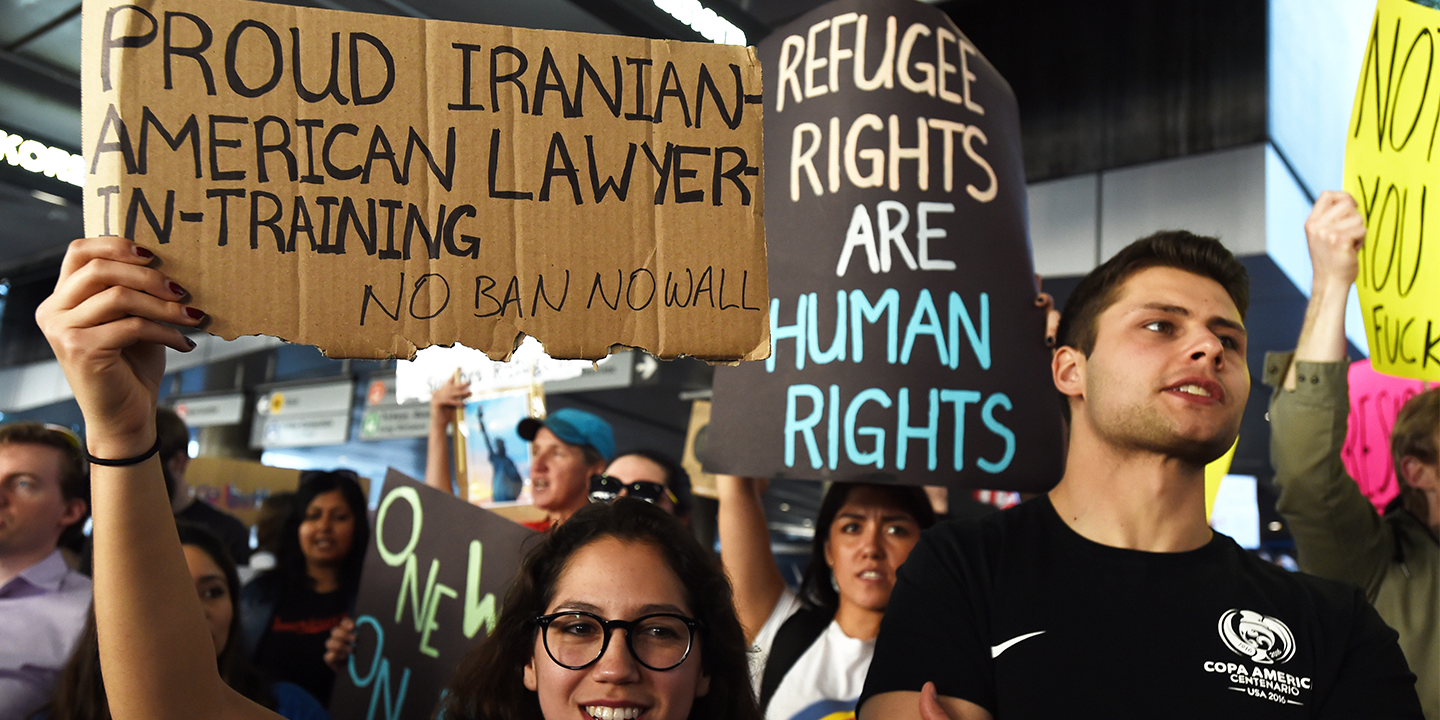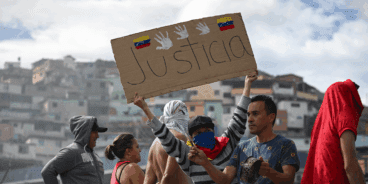

Mass Atrocities, Refugees and US President Trump’s Revised ‘Muslim Ban’
Today US President Donald J. Trump issued a revised executive order restricting entry to the United States for people from six predominately Muslim countries. The new executive order also suspends the US Refugee Admissions Program for 120 days. While ostensibly focused on national security, today’s executive order remains intrinsically linked to President Trump’s December 2015 campaign promise for “a total and complete shutdown of Muslims entering the United States,” and to his previous executive order which was suspended by federal judges.
On 27 January President Trump issued an executive order banning all refugees, migrants and visitors from seven Muslim-majority countries – Libya, Iran, Iraq, Sudan, Syria, Somalia and Yemen. The ban also temporarily halted the US refugee program, preventing the resettlement of people who are fleeing war and persecution in countries where atrocities are occurring or have previously taken place. The ban included previously vetted refugees who have survived genocide in Iraq, war crimes in Yemen, or crimes against humanity in Syria.
For years the United States has been the world’s top resettlement country for refugees, generously accepting nearly 85,000 refugees in 2016 alone. Resettlement programs allow long-term refugees to get out of temporary camps, where they have often spent years, and to rebuild their lives with access to similar civil rights as those enjoyed by nationals. Refugees can not apply for resettlement, nor choose a country to resettle in, but are selected for eligibility by the UN. Refugees who are selected for potential resettlement to the United States are then scrupulously vetted by eight federal agencies, six different security databases, and subjected to rigorous background checks, interviews and biometric testing. For this reason, the resettlement process already takes several years to complete.
The UN Refugee Agency (UNHCR) facilitated the resettlement of more than 140,000 people in 2016, more than half of whom were from Syria.* The majority of refugees entering the United States in 2016 were resettled after fleeing persecution and/or conflict in the Democratic Republic of the Congo (16,370), Syria (12,587), Myanmar (12,347) and Iraq (9,880). Raising concern for those affected by President Trump’s previous ban, the UN High Commissioner for Refugees noted that, “refugees should receive equal treatment for protection and assistance, and opportunities for resettlement, regardless of their religion, nationality or race.”
Although Iraqis have been excluded from President Trump’s revised executive order and there has been a greater attempt to disguise its intent, Omar C. Jawat of the American Civil Liberties Union (ACLU) commented that, “the only way to actually fix the Muslim ban is not to have a Muslim ban.”
For background regarding the threat of atrocities facing populations from countries affected by President Trump’s executive order, click on the maps.
UNHCR provides additional statistics regarding refugee resettlement in the United States here.
See also the Global Centre’s “Statement on United States President Trump’s ‘Extreme Vetting’ of Refugees.”
Related Content


Atrocity Alert No. 447: UN Human Rights Council, Democratic Republic of the Congo and Afghanistan
